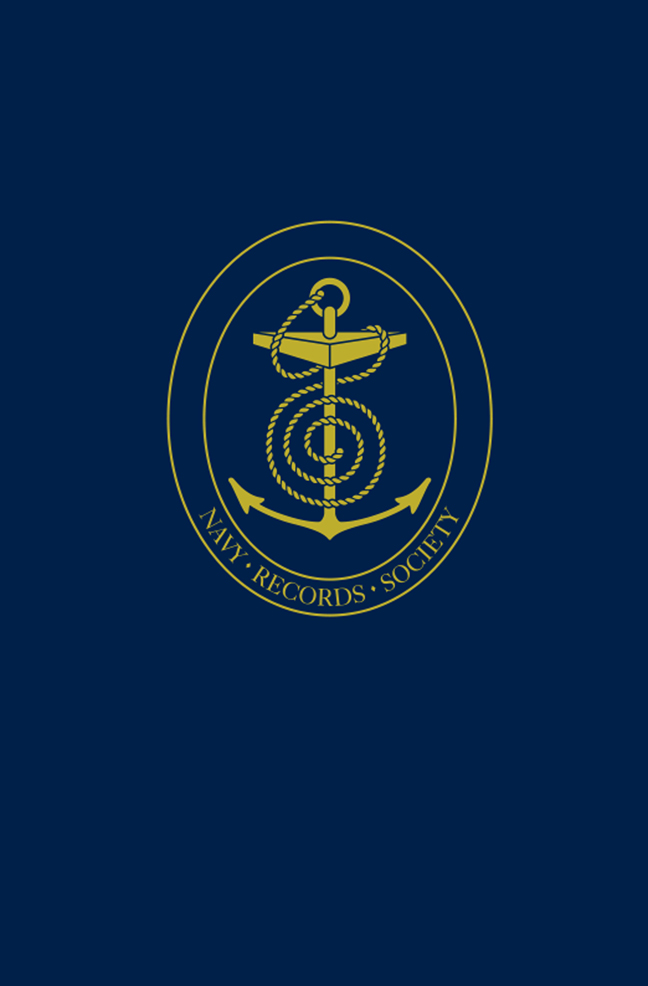 The Cunningham Papers
The Cunningham Papers Book contents
- Frontmatter
- Dedication
- Contents
- Miscellaneous Frontmatter
- List of Maps and Illustrations
- Preface
- Acknowledgements
- Glossary of Abbreviations
- Chronology of the Life and Career of Admiral of the Fleet Viscount Cunningham of Hyndhope
- A Brief Bibliography
- Part I The British Admiralty Delegation, Washington, D.C., March to September 1942
- Part II Return to the Mediterranean
- Part III First Sea Lord
- List of Documents and Sources
- Index
- Miscellaneous Endmatter
Part III - First Sea Lord
Published online by Cambridge University Press: 05 March 2024
- Frontmatter
- Dedication
- Contents
- Miscellaneous Frontmatter
- List of Maps and Illustrations
- Preface
- Acknowledgements
- Glossary of Abbreviations
- Chronology of the Life and Career of Admiral of the Fleet Viscount Cunningham of Hyndhope
- A Brief Bibliography
- Part I The British Admiralty Delegation, Washington, D.C., March to September 1942
- Part II Return to the Mediterranean
- Part III First Sea Lord
- List of Documents and Sources
- Index
- Miscellaneous Endmatter
Summary
SECTION A
APPOINTMENT
SEPTEMBER 1943–MARCH 1944
It might be thought that Cunningham succeeded to the First Sea Lord's post by divine right and with the smoothness of a calm sea; that, it seems, is what the Navy as a whole expected and wanted. The actual transfer of power from the fading Pound, who was effectively out of the frame in September 1943, eventually dying on Trafalgar Day (21 October 1943), to the new man was, however, protracted because of Churchill's disinclination to accept Cunningham [150–1, 153]. He raised a smokescreen of reasons not to have him and actually summoned to London Admiral Sir Bruce Fraser, C-in-C, Home Fleet, who had become well known to the Prime Minister while serving at the Admiralty as Controller and Third Sea Lord. He offered Fraser the post but the latter, in an act of magnanimity rarely paralleled, declined in favour of Cunningham [152]. Churchill had no choice but to interview Cunningham, whom he said was in accord with his own aims; that was surely an attempt to put the best possible construction on the appointment of someone he feared would prove obstructive and out of sympathy with his grandiose strategic vision. He had to take the advice of the First Lord, A. V. Alexander, in turn advised by the Naval Secretary, Rear Admiral Freddy Dalrymple-Hamilton, who put the case for Cunningham deftly, while Alexander showed unusual force and persistence in favouring the C-in-C, Mediterranean [141–6].
Fraser would have proved a suitable candidate, for he was an officer of wide experience and, as a result of serving as Controller, knew his way round the Whitehall jungle and was adept at inter-service politics. He was relatively young, pleasant and sharp, technically proficient, open to new ideas, and had spent a year with the Home Fleet, gaining its confidence. The other possible contenders received hardly a mention by anyone. Sir John Tovey, Fraser's predecessor as C-in-C, Home Fleet, and now C-in-C, The Nore, had crossed swords with Churchill on several occasions, while Sir Max Horton, C-in-C, Western Approaches, and Sir James Somerville, C-in-C, Eastern Fleet, though spoken of occasionally elsewhere, seem not to have entered Whitehall discussions [141].
Cunningham was viewed by Churchill as a dinosaur of the battleship age, unable and unwilling to adapt to aviation-led and small ship naval warfare.
- Type
- Chapter
- Information
- The Cunningham PapersSelections from the private and official Correspondence of Admiral of the Fleet Viscount Cunningham of Hyndhope, O.M., K.T., G.C.B., D.S.O. and two bars. Volume II: The Triumph of Allied Sea Power, 1942–1946, pp. 139 - 408Publisher: Boydell & BrewerFirst published in: 2024
